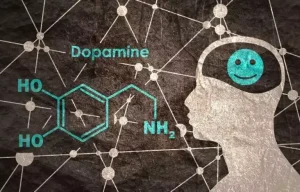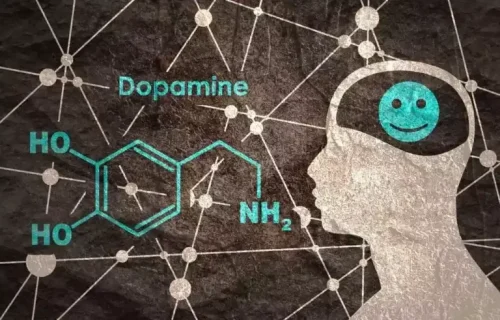
People who overdose on cannabis can experience paranoia, panic or acute psychosis, especially if they are new users or already have a mental health condition. Some people may use cannabis in an effort to manage symptoms of existing mental health conditions (self-medication). It can be hard when you’re living with marijuana abuse or watching someone you care about deal with it. They can help identify treatment options that are appropriate for your situation and provide resources for family and friends. Marijuana contains psychoactive compound THC (delta-9-tetrahydrocannabinol), which acts on the cannabinoid receptors in your brain to give you a high feeling. As you continue using the substance, your brain gets used to it and needs higher doses of the drug to feel the same high.
Practical Day-to-Day Strategies
Many users fear this, yet research shows cognitive flexibility improves after abstinence. Early studies suggest CBD can ease anxiety and insomnia during withdrawal, but optimal doses and long-term benefits need more research. Start your recovery journey with peace of mind, knowing your care is covered. Learn more about the clinical criteria used to diagnose an addiction. Addiction is a compulsive need to use cannabis despite its harmful effects on your relationships, work or health. Understanding the difference between dependence and addiction is really important for anyone wanting to assess their relationship with cannabis.
Physical Symptoms
- Over time, regular marijuana users show reduced dopamine receptor availability, diminishing the satisfaction of natural rewards.
- Not just your surgeon or primary care doctor, but any health care provider you see for physical or mental health, needs to know about your cannabis use.
- If you drink THC-infused drinks or eat THC edibles, it may take much longer for you to fully sober up.
- The prevalence of DSM-IV CUD in adults from 2002 to 2017 stayed constant at 1.5% to 1.4% in the previous year.
- Questions of medication abuse and diversion must be addressed, as with opiate agonist substitution treatment.
Whether you are seeking intensive outpatient care or simply need guidance on your mental health journey, we are here to help. Marijuana addiction, clinically referred to as cannabis use disorder (CUD), is a compulsive pattern of cannabis use despite adverse consequences, according to Zehra A. Et al.’s 2018 review “Cannabis Addiction and the Brain” published in the Journal of Neuroimmune Pharmacology.
Marijuana Symptoms And Warning Signs

Despite its widespread use and a common belief that it’s not addictive, research suggests around 9% of people who use cannabis do go on to develop an addiction. Cannabis addiction can negatively affect all aspects of a person’s life, including health, relationships and daily responsibilities such as work or school. Cannabis use disorder is a complex mental health and brain condition. Changes to your brain can make it hard to stop using cannabis, even if you want to.
Some long-term users may never experience any side effects, other than an increased tolerance to the substance. This substance can be used to treat a wide variety of medical conditions, from pain to insomnia to anxiety. Some doctors, nowadays, will Oxford House prescribe marijuana over other prescription drug alternatives, like opioids. Seeking help through treatment can teach users how to get over the emotional hurdles of quitting marijuana. Treatment for marijuana abuse often includes a therapist who can coach patients through rough days and support groups that can provide comfort. Contact a treatment provider if you or someone you care about needs help finding treatment.
Signs you might need support for cannabis addiction
Regular marijuana use for many years can put you at risk for this condition. One theory is that cannabis use could overactivate the cannabinoid receptors in your brain. Many people find that hot showers and baths can https://ecosoberhouse.com/ help them control symptoms.
- Unlike those quitting heroin or alcohol, the primary symptoms of marijuana withdrawal are psychological rather than physical.
- Recreational users seek its psychoactive effects, as tetrahydrocannabinol (THC) elicits feelings of euphoria, relaxation, and altered perception.
- They help control various functions, such as hunger, memory, and alertness, and make adjustments in real time to keep your body running smoothly.
- Cognitive behavioral therapy is one form of evidence-based therapy that focuses on teaching individuals how thoughts, emotions, and behaviors are interconnected.
- Buspirone is the only medication to date that has shown efficacy for cannabis dependence in a controlled clinical trial.

Your doctor may also assess how frequently you use cannabis to help with diagnosis 6. They can offer the encouragement and support that you need to be successful. When you find yourself struggling with stress or anxiety, try implementing some effective stress management techniques such as deep breathing or progressive muscle relaxation.

Many people can use marijuana safely without becoming addicted or abusing it. But like any mind-altering substance, there’s always a chance that it can become problematic. These signs, along with any negative consequences from marijuana use, may signal a drug abuse problem. Despite the negative influence their addiction has on their life, how long does weed stay in your system however, someone with cannabis use disorder will continue to use marijuana. A person with marijuana addiction may struggle to maintain healthy relationships with their friends and family if they withdraw from socializing in order to use the drug.
Can You Overdose on Marijuana?

However, a positive drug test does not necessarily mean the person has cannabis use disorder and a negative drug test does not rule it out. Instead, it is more important to look at reported cannabis intake compared to the amount that is in the blood. Just because the name has changed and the term « cannabis use » has replaced « cannabis abuse » or « cannabis dependence » doesn’t mean that cannabis is not addictive.

Therefore, medications that target the brain dopamine reward system may have a role in the treatment of cannabis dependence, as they may for other drugs of abuse. There are many different factors that affect marijuana withdrawal symptoms. Symptoms are typically more pronounced withchronic, frequentmarijuana use. In other words, people who have used large amounts of marijuana for a long time may have more severe withdrawal symptoms. This is because it’s more likely that the person will have a heavy physical dependence on marijuana when they quit. If marijuana is combined with other substances, such as illicit drugs oralcohol, withdrawal symptoms may be heightened as well.
